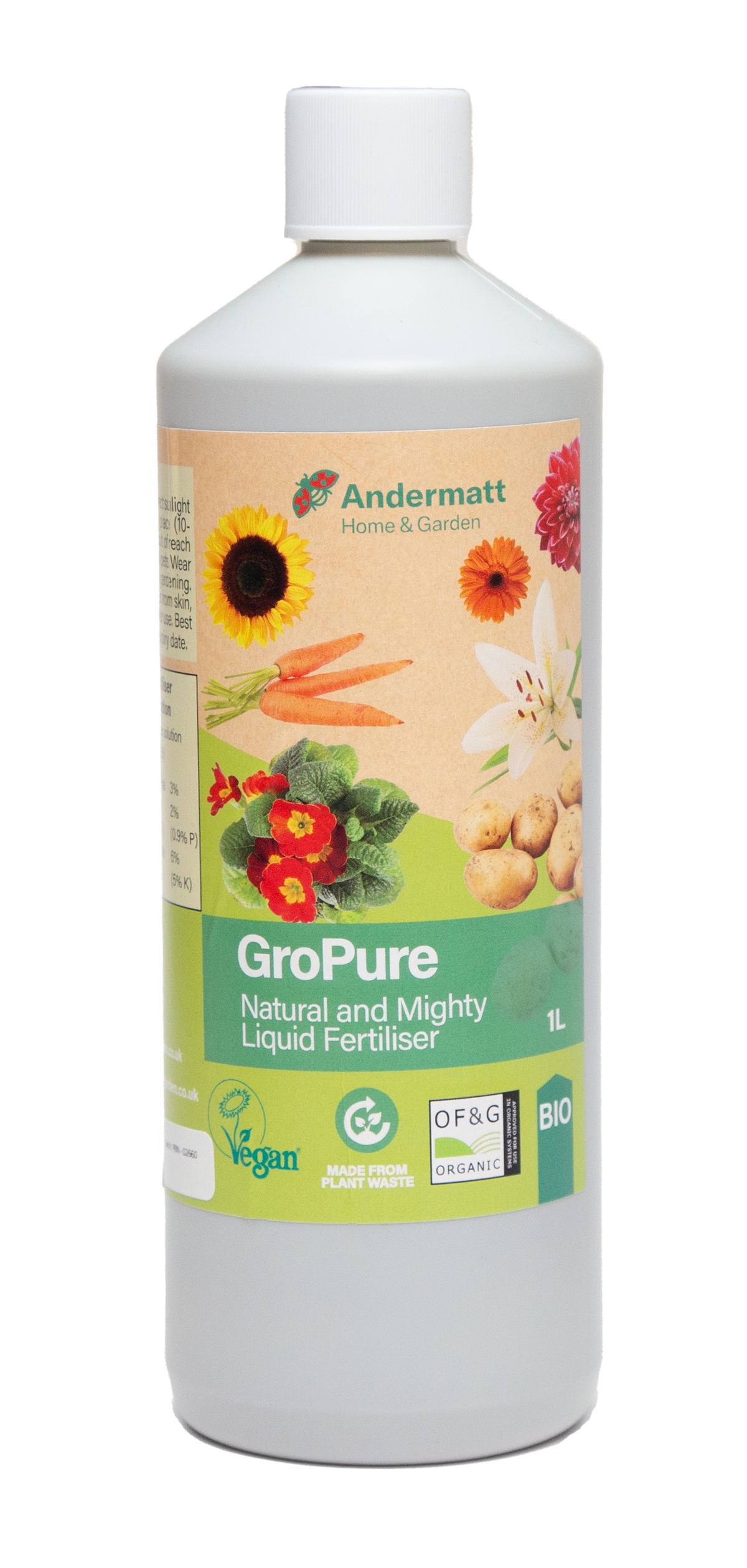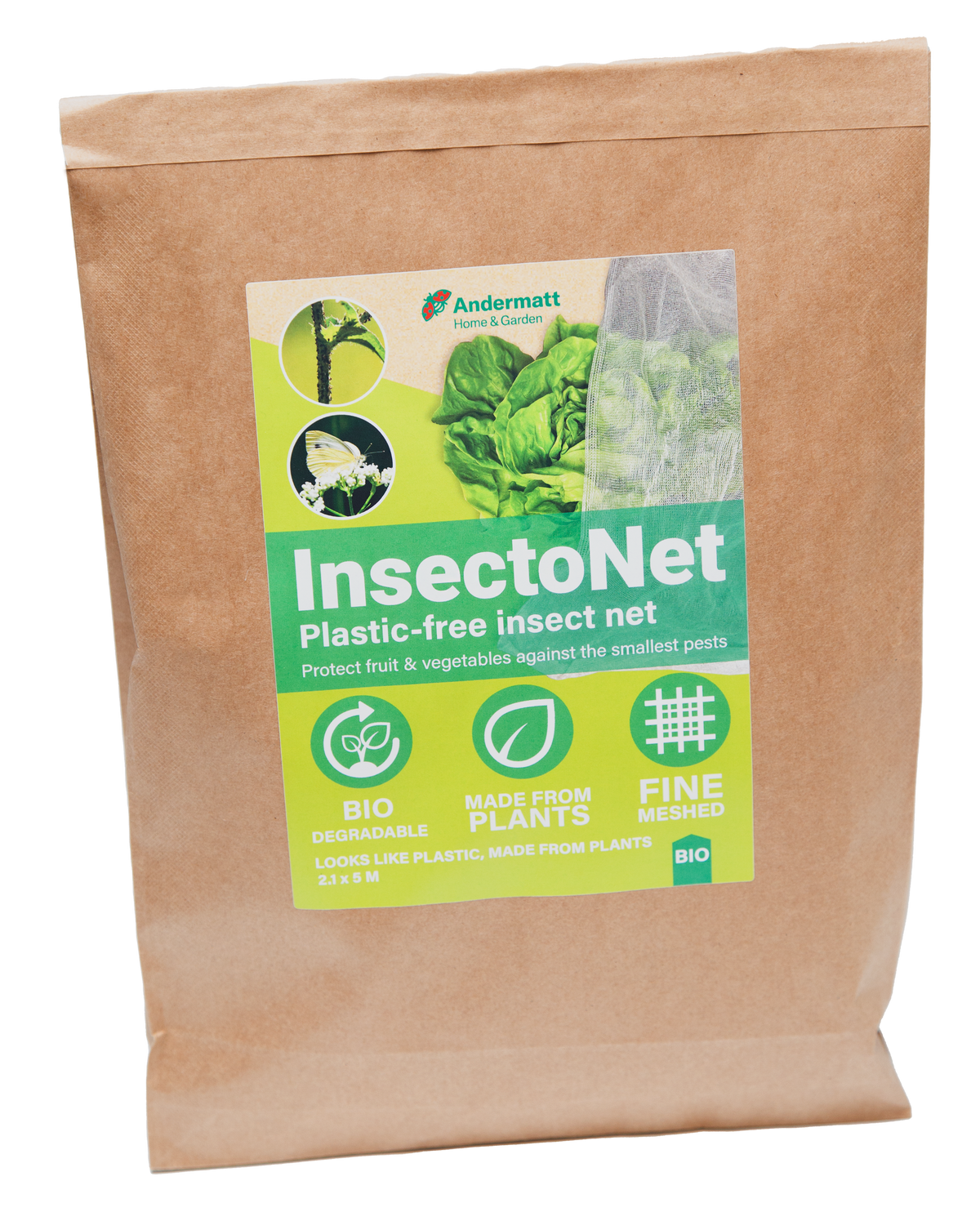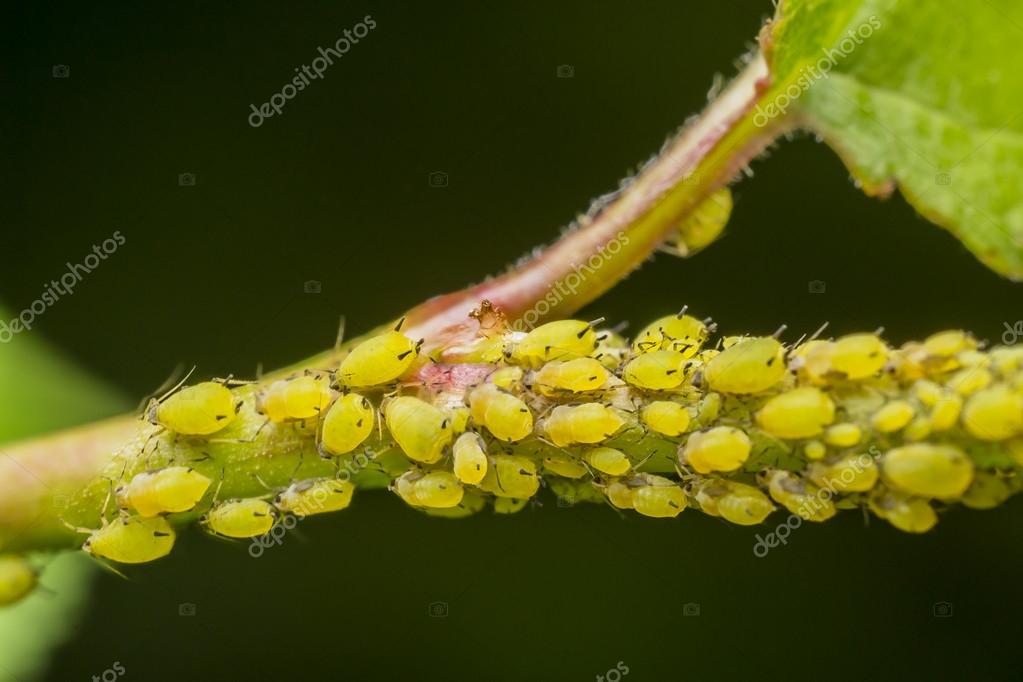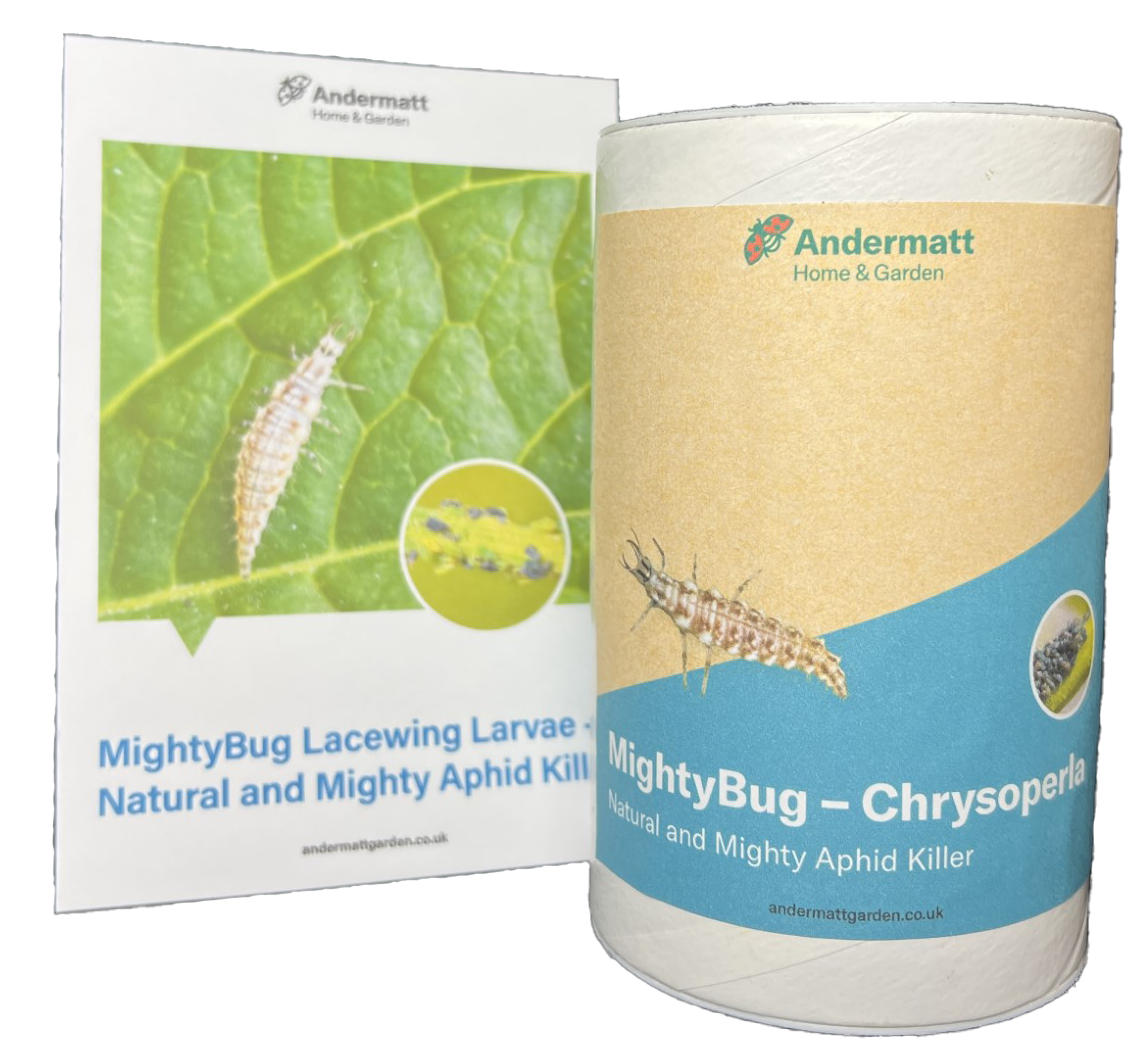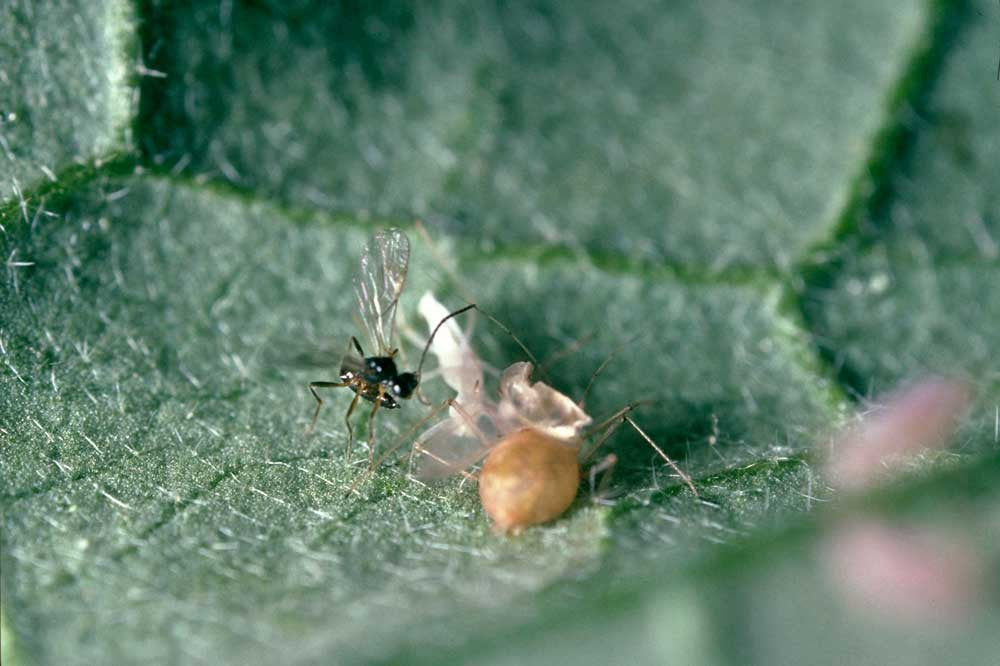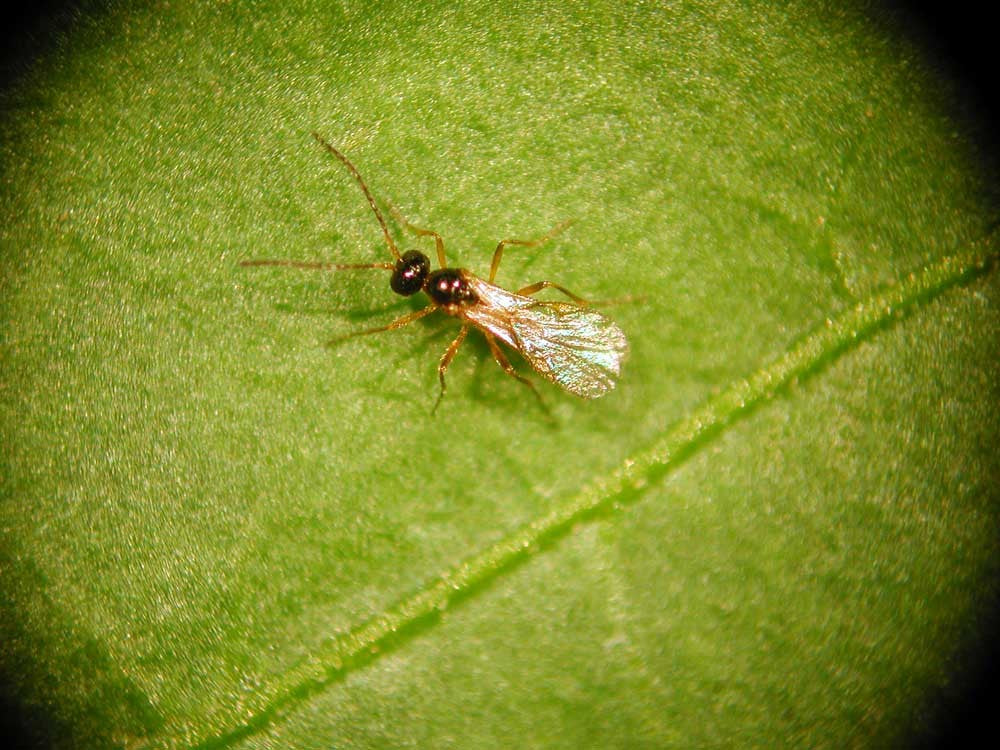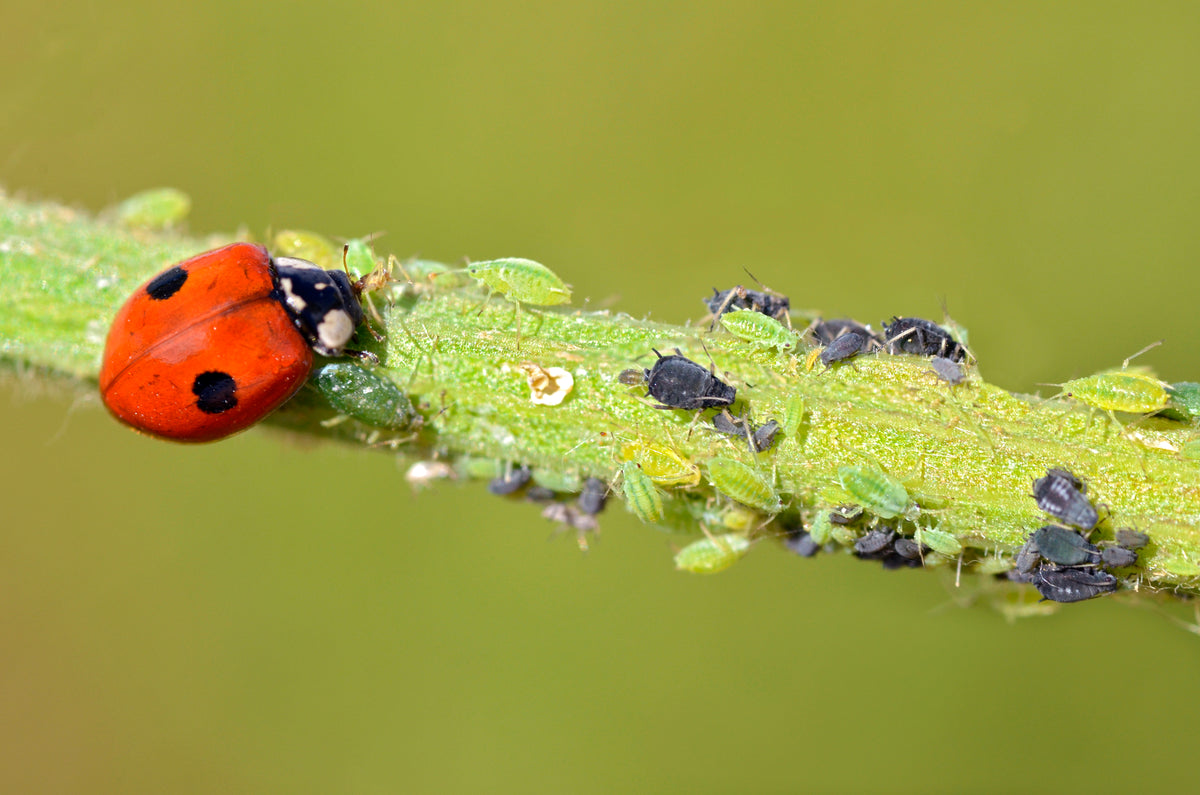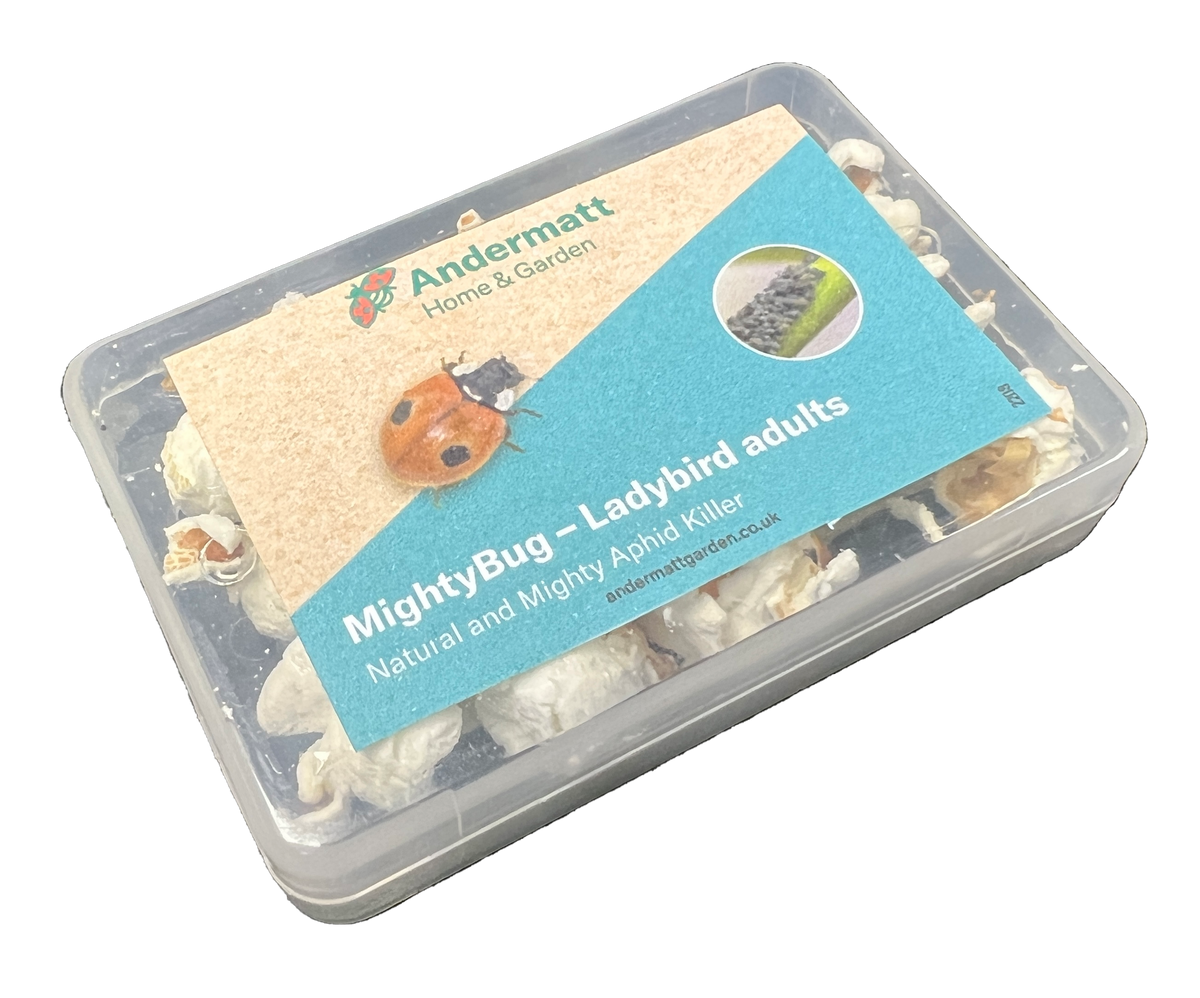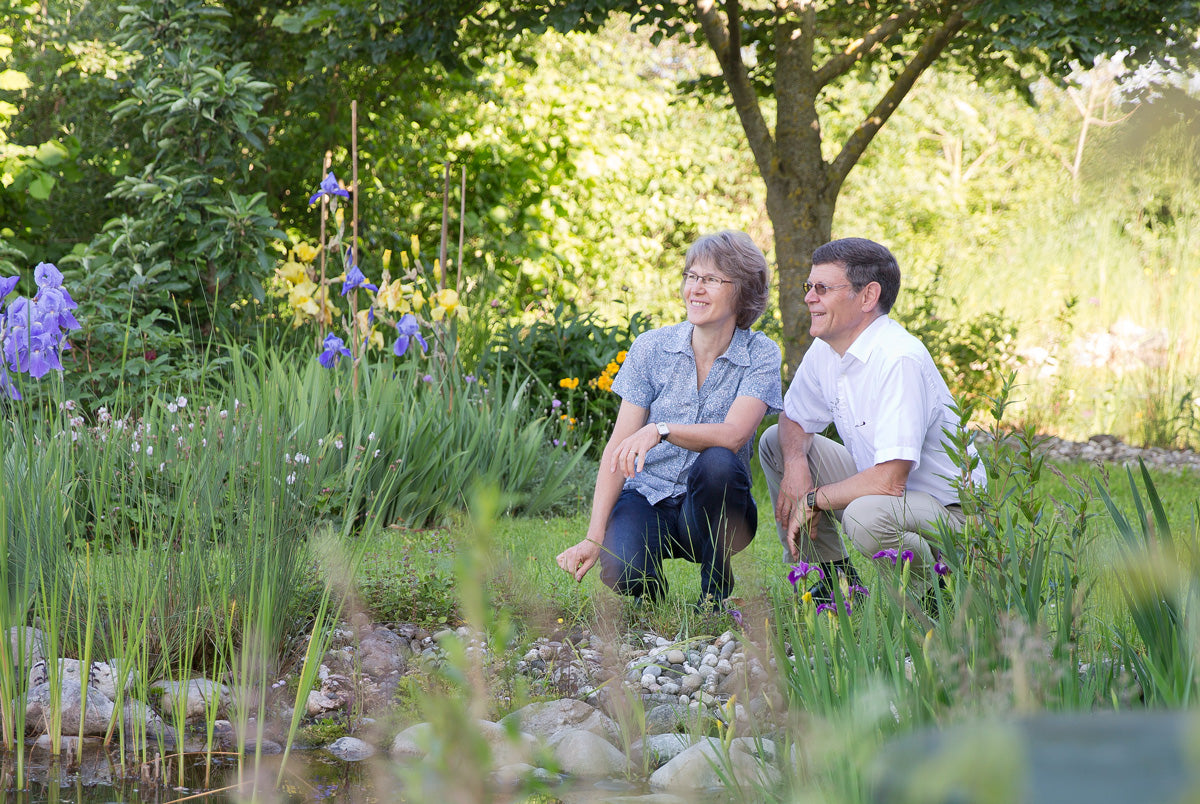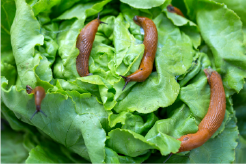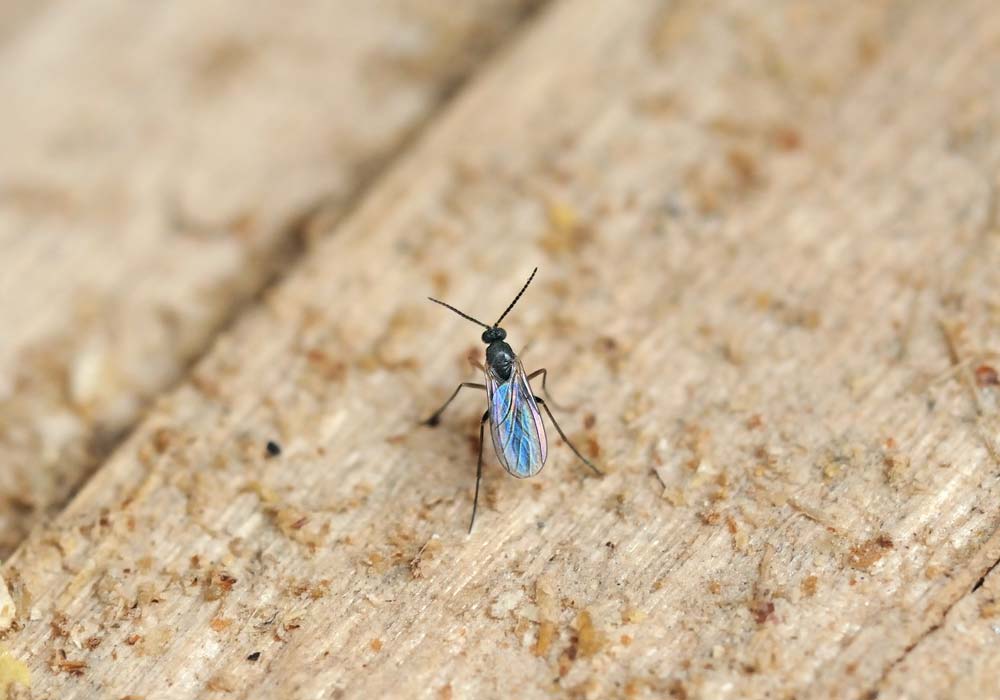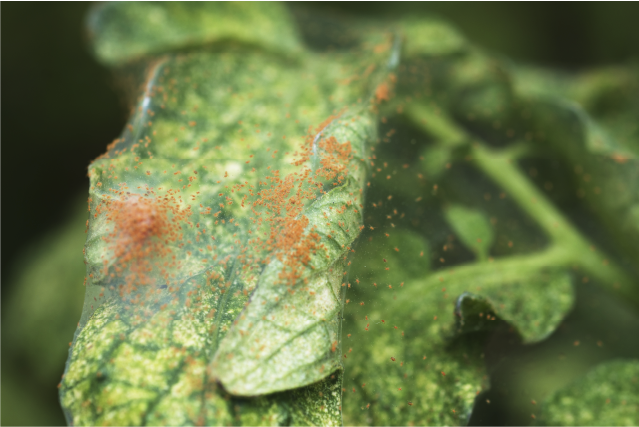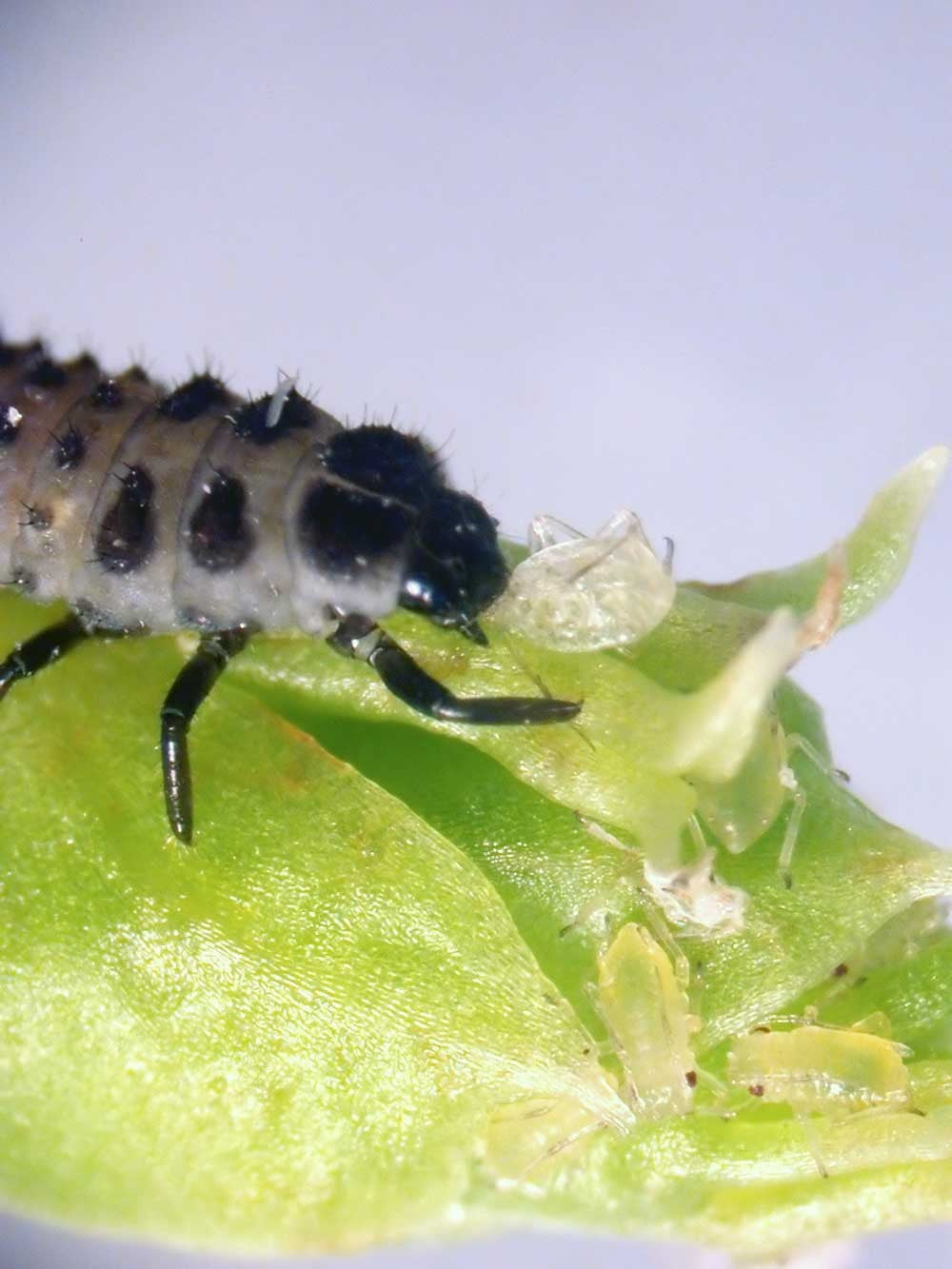
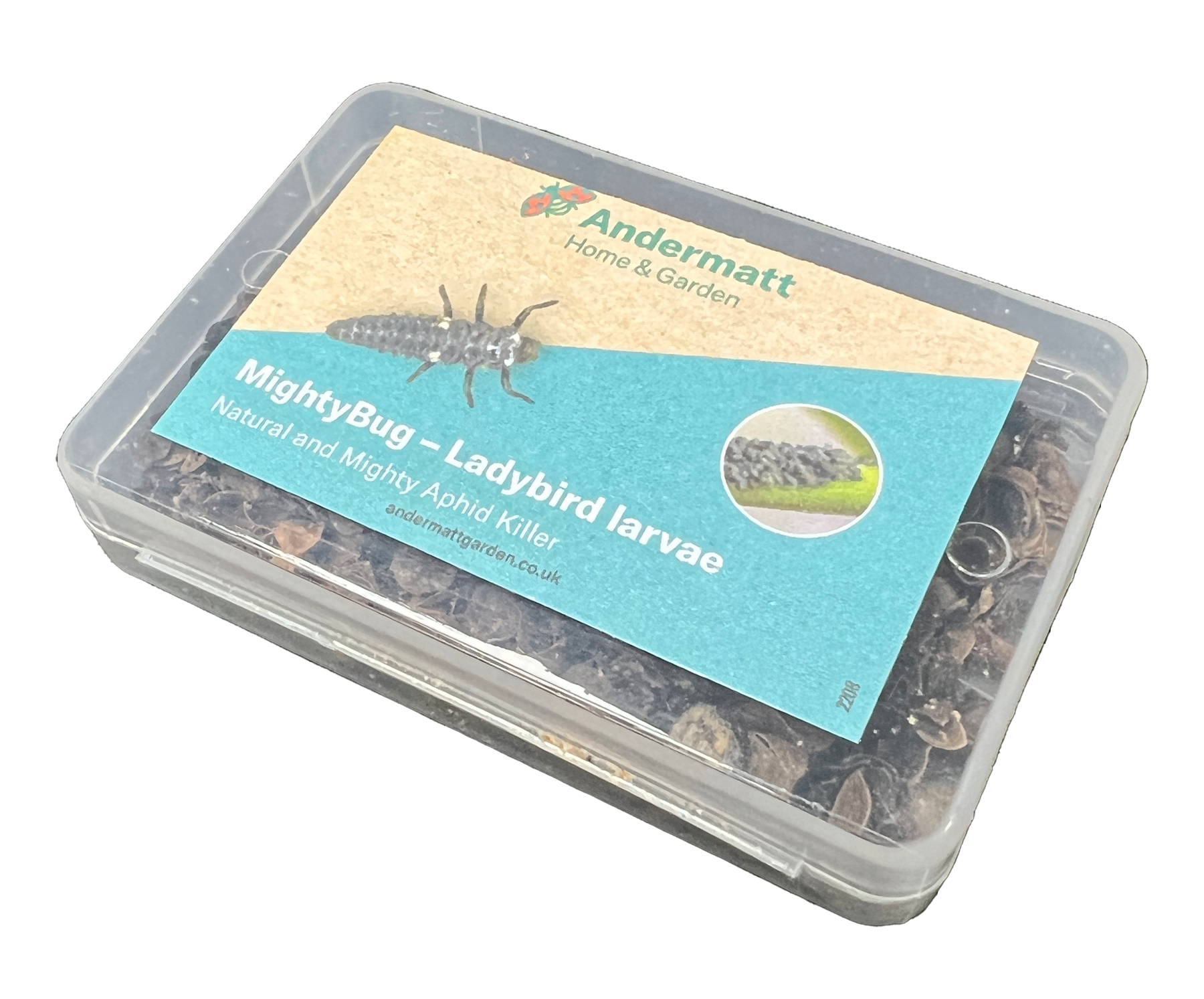
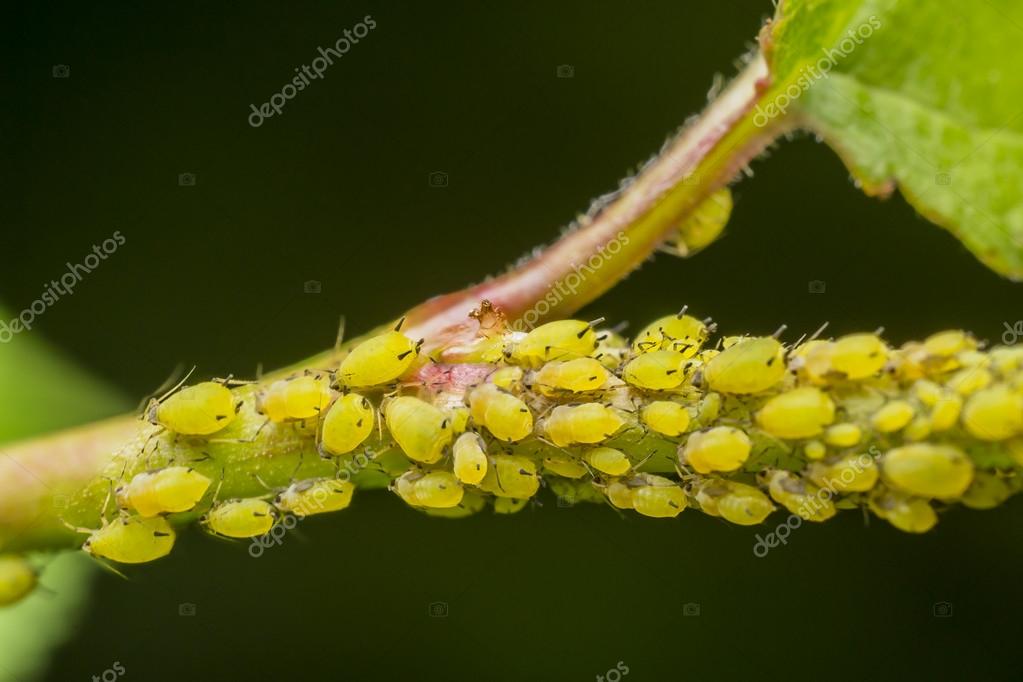

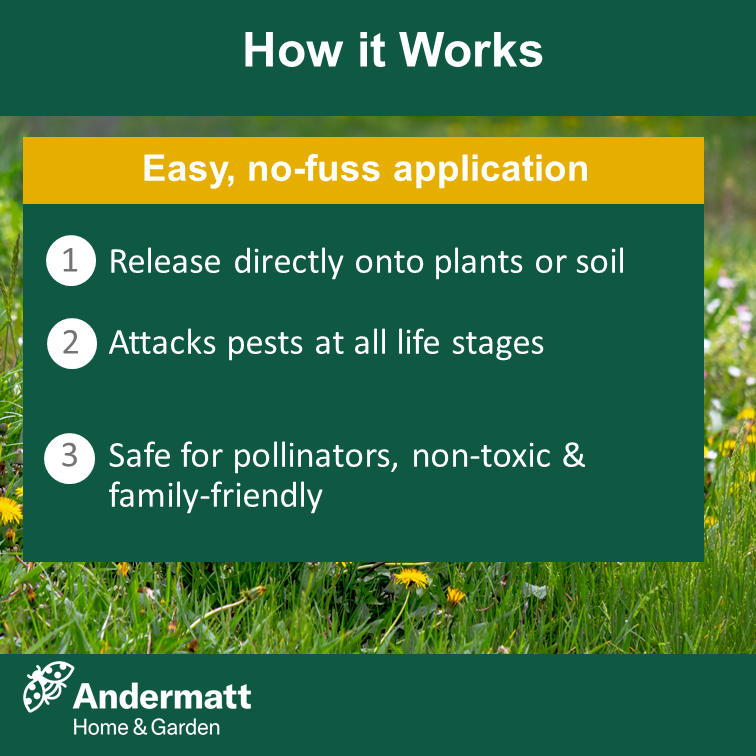
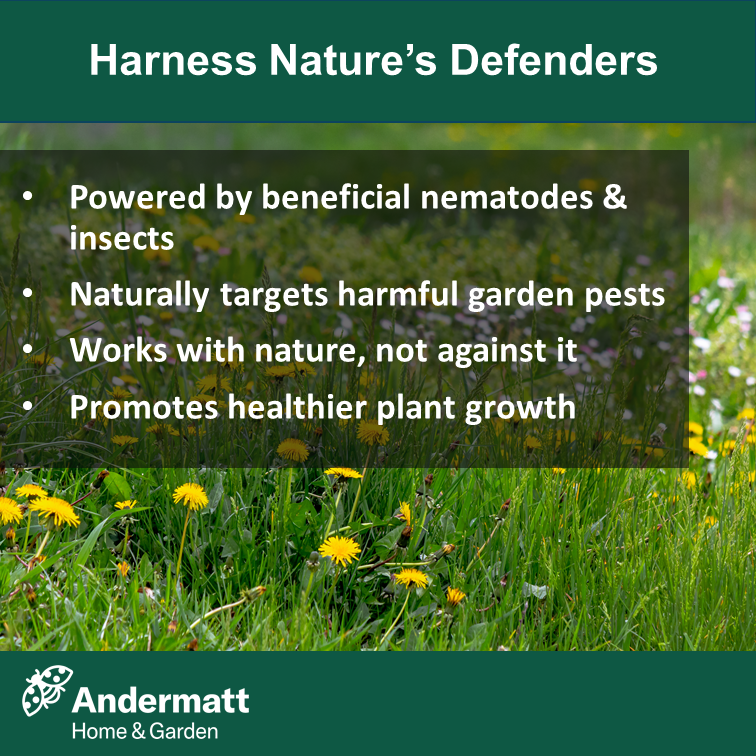
Andermatt Home & Garden
MightyBug - Ladybird Larvae
(Subscription option lasts for 12 weeks - 3 x 4 weekly deliveries)
Free shipping on orders £30 and over
*MightyBugs are dispatched on Thursdays.
MightyBug – Ladybird larvae contains the natural predator the two spotted ladybird (Adalia bipunctata) which hunts and eats aphids. The ladybird larvae cannot fly, they will walk around the plants searching for aphids (greenfly and blackfly) which are typically found hidden on the underside of leaves or at the growing points on a wide range of garden flowering, fruit and vegetable plants. Ladybirds are the most well know beneficial insect and friend to the gardener. Easy to identify and veracious hunter and eater, ladybird larvae consume even more aphids than adult ladybirds and can rapidly control an outbreak of aphids on a plant. Ladybird larvae will eat a wide range of aphid species which can be useful if you have aphid problems on a number of different plants which may be different types of aphid, or do not know which aphid species is causing the problem.
Ladybirds are fairly generalist predators and as well as eating aphids, they will also feed on other soft bodies pest insects such as thrips and spider mites. Although control of these other pests is a bonus and ladybirds should not be relied upon alone to control these other pest insects, and if thrips and spider mite are causing the problem pest insect specific biologicals should be used.
MightyBug – Ladybird larvae come in containers along with buckwheat, a carrier material which is used to keep the small ladybird larvae safe during transport and give them somewhere to hide. Ladybird larvae will be small on arrival and may be difficult to find hidden in the buckwheat. Once released they will feed and grow over approximately 4 weeks, as they grow they will develop their identifiable orange patches on their flanks. The ladybirds in the MightyBug – Ladybird larvae are simple to apply by either pouring over the plant leaf surfaces or adding to a MightyBug Distribution Box and then left with no maintenance required.
MightyBug – Ladybird larvae should be applied at a rate of 10 larvae per square meter.
One pack treats either 10 or 25 square meters depending on pack size.
- MightyBug – Ladybird larvae containing 100 larvae treats 10m sqm
- MightyBug – Ladybird larvae containing 250 larvae treats 25m sqm
When is it best to use?
|
J |
F |
M |
A |
M |
J |
J |
A |
S |
O |
N |
D |
Ladybird larvae MightyBugs require temperatures of 12-13°C to be active. In unheated greenhouses or plants grown outdoors, this would typically mean it is suitable for use April to October. In heated greenhouses or indoors it can be used year-round as long as temperatures are suitable and there are pest aphids available to eat.
As well as the correct temperature, it is important that the ladybird prey (aphids) are present on the plants when the ladybird larvae are used. If there are no aphids on the plants for the ladybirds to eat, the ladybird larvae will eat each other.
The problem:
Aphids (also commonly known as greenfly and blackfly) are the most common pest insect for UK gardeners. They are commonly found on a range of ornamental flowers, fruits and vegetables. Feeding on plant sap, they weaken the plants stunting growth and reducing the plants produce be it flowers or food. Aphids also excrete honeydew as they feed which causes sticky deposits on leaves, fruits and working surfaces below them which also results in mould growth. Aphids live in colonies and are able to reproduce at a very fast rate meaning they can change from a few individuals to huge colonies within days. Some adults are winged which allows them to disperse and find new plants to infest, once a new colony is started the majority of the aphids within it will be wingless and so relatively immobile.
Aphids typically live on the underside of leaves and at the soft growing points of the plant. They are small insects which can vary greatly in colour from green to brown to black depending on the species of aphid which is living on the plant. Similar in size and appearance to whitefly, whitefly can be distinguished by their white bodies and wings, also the adult whitefly taking to flight when disturbed whereas winged aphid adults tend to stay on the plant until directly disturbed.
The product:
MightyBug – Ladybird larvae is a natural beneficial predator containing larval stages of the two spotted ladybird (Adalia bipunctata). A native species to the UK, the two spotted ladybird is a well know gardeners friend with a voracious hunger for eating aphids. Easy to use by simply releasing the pack contents either onto leaf surfaces or into distribution boxes the ladybird larvae are ready to go and will immediately start to move around the plant to hunt and eat aphids.
MightyBug – Ladybird larvae should be used when pest aphids are present so that there is food for them to eat. Their hunger and ability to consume 60 aphids per day means they will quickly get on top of an aphid infestation, Ladybird larvae will feed for approximately four weeks after release, at which point they will pupate and turn into adult beetles. After emerging as adult ladybird beetles, they will continue to feed on aphid and other soft bodies pest insects.
Ladybird larvae supplied as MightyBugs are young and small. They may be difficult to find in their buckwheat carrier material and once released onto the plants. As they feed they will grow rapidly and develop their characteristic orange marks on their flanks. When larger they can be followed around the plants and watched as they hunt aphids.
The Ladybird larvae are relatively small on arrival, and as with all of the MightyBug range, are safe for children, pets, wildlife and the plants you are lovingly tending.
How to use:
As with all MightyBug predators, use immediately upon receipt. Fresh is best!
MightyBug – Ladybird larvae do not fly, however ensure you are near to where you plan to release them before opening the pack to prevent them escaping.
The ladybird larvae will be camouflaged on the brown buckwheat carrier material and so you may not be able to see them initially. The ladybird larvae will be small when delivered, but will grow rapidly as they eat the aphids on the plants in your garden, home and greenhouse.
Open the container and gently shake the brown buckwheat content either directly onto the leaves of the plant or into distribution boxes hung from leaves in the plant around areas infested with aphids. Care should be taken not to tip the ladybird larvae onto the floor or soil as this makes it difficult for the ladybird larvae to climb back onto the plant and find the aphids to eat.
If using distribution boxes, they should be hung from leaves on the plant infested with aphids and hung as close to the aphids as possible to make it easier for the ladybird larvae to find their food. Distribution boxes should be hung in the shade and not in direct sunlight. MightyBug distribution boxes are used for initial easy beneficial insect introduction. After being released the MightyBugs will not live in the boxes, they will move through the plants hunting for pest insects to eat.
MightyBug – Ladybird larvae should be distributed over the plant area infested with aphid colonies. They are an ideal curative treatment to control hot spot patches of aphid colonies.
Ladybird larvae will start to hunt and eat aphids immediately. As they eat aphids and other pest insects they will grow and eventually turn into their well-known red with black spots adult beetle form. Adult ladybirds can fly, but if there are enough aphids in the area they will stay on the plants continuing to eat aphids and lay eggs to create future generations of MightyBugs to protect your plants.
Ladybird larvae require temperatures of 12-13°C to be active. In unheated greenhouses or outdoor plants this would typically mean it is suitable for use April to October. In heated greenhouses or indoors it can be used year-round as long as temperatures are suitable.
MightyBug – Ladybird larvae are an excellent curative treatment to give quick control of established aphid populations. They will eat all development stages of a wide range of aphid species. To combine with a long-term preventative treatment ladybird larvae can be combined with parasitoid wasps for example MightyBug – Aphid predator mix.
Chemical compatibility. We recommend not using chemicals which are known to harm mites or small insects at the same time as MightyBugs. Chemical pesticides often are not specific in what they kill and they can harm beneficial insects at the same time as the pests they are being used against.
| Store | Do not store, use immediately after receipt. |
| Shelf life | Use immediately after receipt. |
| Use |
Can be used year-round in protected or indoor environments where temperatures are at least 12°C. MightyBug – Ladybird larvae containing 100 larvae treats 10m^2 MightyBug – Ladybird larvae containing 250 larvae treats 25m^2 |
| Important information | Contains living organisms. Use immediately after receipt. |
| Active substance and content | Product contains Adalia bipunctata. This is a species found naturally in the UK. |
| Product size |
You may also like
FAQ
about the product





